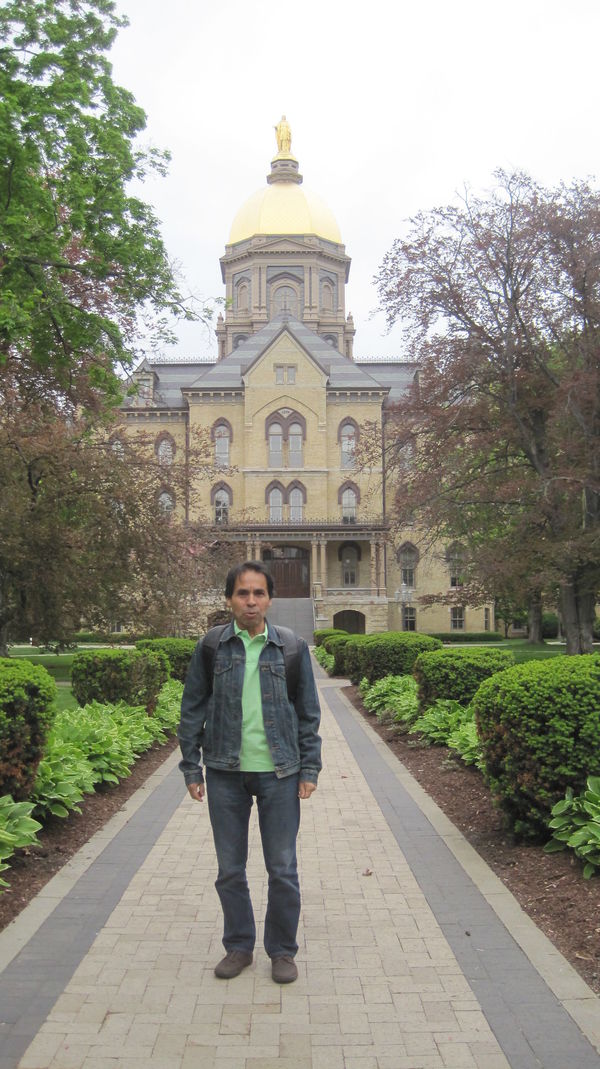Luksic Grants Strengthen Ties Between Notre Dame and Pontificia Universidad Católica de Chile
Now in its third award cycle, the Luksic Grants Program is making great progress toward its goal to promote and expand collaborations between the University of Notre Dame and Pontificia Universidad Católica de Chile (PUC).
Proposals for fall 2015 are due October 30, 2015. Notre Dame faculty are encouraged to visit this page for submissions guidelines.
Since its inception in spring 2013, the Luksic Grants Program has funded 24 collaborative projects with awards totaling close to $200,000 across various colleges and disciplines at both universities. These funds have enabled approximately 40 Notre Dame faculty and graduate students to travel and work with more than 50 colleagues at PUC. Luksic support in Chile has also allowed a similar number of PUC faculty and staff to travel from Chile to Notre Dame.
Luksic-funded collaborations and research represent 16 different disciplines, including law, political science, history, sociology, economics, physics, chemistry, biochemistry, biological sciences, finance, medicine, computer science, German, mathematics, philosophy, and multiple branches of engineering.
For more detailed information, please download the full list of projects awarded Luksic funding between 2013 and 2015.
Luksic Award News Stories
Luksic Award Photos
 Yi-Fang Huang of Notre Dame’s Department of Electrical Engineering at Luksic Complex on PUC campus. Huang and ND colleague Vijay Gupta are working with Miguel Rios, Christian Oberli, and Christian Escauriaza of PUC on the project titled “Distributed Sensor Network for Monitoring and Mitigating Natural Hazard.”
Yi-Fang Huang of Notre Dame’s Department of Electrical Engineering at Luksic Complex on PUC campus. Huang and ND colleague Vijay Gupta are working with Miguel Rios, Christian Oberli, and Christian Escauriaza of PUC on the project titled “Distributed Sensor Network for Monitoring and Mitigating Natural Hazard.”
 Amador Guzman of PUC visits Notre Dame in May 2015. Guzman and his PUC colleague Loreto Parra have collaborated with Notre Dame’s Hsueh-Chia Chang on the project titled “A High-Throughput Optical Micro-Well Reactor Array Technology for Massively Parallel Drug Discovery by Directed Evolution.”
Amador Guzman of PUC visits Notre Dame in May 2015. Guzman and his PUC colleague Loreto Parra have collaborated with Notre Dame’s Hsueh-Chia Chang on the project titled “A High-Throughput Optical Micro-Well Reactor Array Technology for Massively Parallel Drug Discovery by Directed Evolution.”